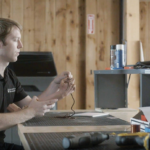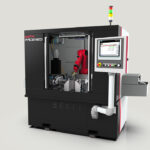ASIA ELECTRONICS INDUSTRYYOUR WINDOW TO SMART MANUFACTURING
Manufacturing Reaps from New Siemens, AWS Alliance
Siemens and Amazon Web Services (AWS) are strengthening their partnership and making it easier for businesses of all sizes and industries. Particularly, the two companies are building and scaling generative artificial intelligence (AI) applications.
Most importantly, domain experts in fields such as engineering and manufacturing will be able to upgrade existing applications with the most advanced generative AI technology. Logistics, insurance, and banking are other fields that will benefit further from this alliance.
To make this possible, Siemens is integrating Amazon Bedrock. Specifically, this service offers a choice of high-performing foundation models from leading AI companies via a single API, along with security, privacy, and responsible AI capabilities – with Mendix, the leading low-code platform that is part of the Siemens Xcelerator portfolio.
“By integrating Amazon Bedrock into our low-code platform, we are democratizing generative AI technology. (This empowers) everyone to create the applications customers need to become more competitive, resilient, and sustainable,” said Roland Busch, CEO of Siemens. In addition, Busch said, “Making smarter applications without programming expertise accelerates innovation and helps companies to tackle skilled labor shortages.”

Meanwhile, Adam Selipsky, AWS CEO said the collaboration will allow companies worldwide to create new capabilities, solutions, and value with generative AI. “This partnership builds on our 10-year relationship with Siemens. Giving customers across all industries the flexible, customizable, secure environment they need to take advantage of new opportunities with generative AI.”
Manufacturing Scenarios
The combination will enable customers to select the generative AI model that best suits their specific use case and quickly and securely incorporate that model into their applications. This will make their development simpler, faster, and more efficient.
Previously, when developers wanted to integrate generative AI models, they had to obtain access credentials and write specialized function code. With the new Mendix-Amazon Bedrock integration, this has been possible with just a few clicks.
Teams can create smart, industry-hardened applications without dedicated programming knowledge and users can interact with information easily via a graphical interface and the simplicity of drag-and-drop commands.
This innovation allows Mendix customers to apply generative AI to drive productivity within their workforce. For example, using generative AI, a factory worker can find machine documentation faster. Thus, generating relevant visualizations without a need to manually search a database, manuals, and records.
A production engineer could also use generative AI to suggest machine adjustments. Primarily, this improves yield and gives suggestions on equipment adjustments and maintenance to maximize a factory’s productivity. Most importantly, customers do not need to build their own AI infrastructure. They will be able to harness the power of their company’s data with the highest possible security and privacy, maintaining full control of their data.
Gives Ease to Users
Generative AI technology can supercharge applications with features like summarizing and analyzing lengthy technical or legal documents. Financial businesses can integrate automatic fraud detection into their software. On the other hand, workers in a car factory can improve quality based on AI analysis of millions of data points in the manufacturing line.
With access to a choice of foundational models on Amazon Bedrock, users can easily select the best model for their specific task and integrate it with just a few clicks.
The collaboration expands on the long-established partnership between AWS and Siemens to help streamline the use of IT and cloud technology. Thus, it can easily integrate in applications and machine workflows, making it seamless to engage.
Today, more than 50 million end users worldwide work with more than 200,000 applications built with Mendix’s low-code platform. Furthermore, they are available as part of the Siemens Xcelerator portfolio.
Low-code platforms are likely to grow over the next years. The technology enables developers to create applications by drag and drop with reusable components and software building blocks. This means they can build more software faster and with smaller teams.




